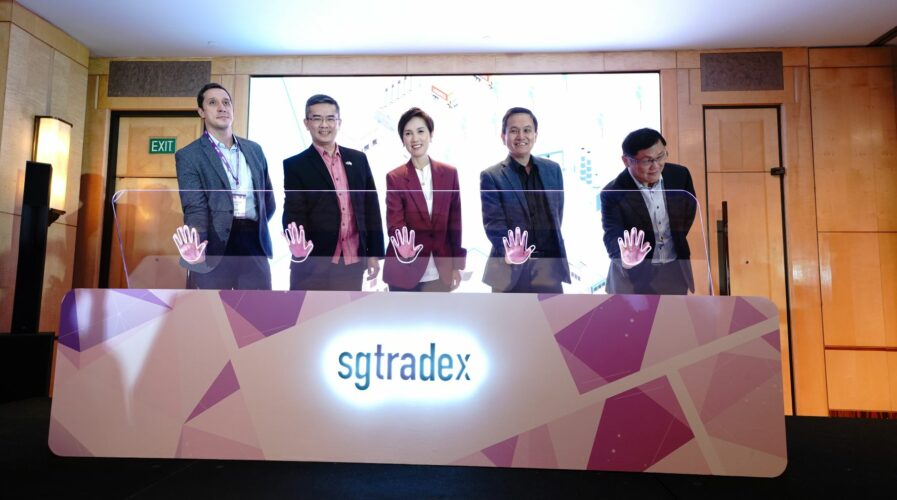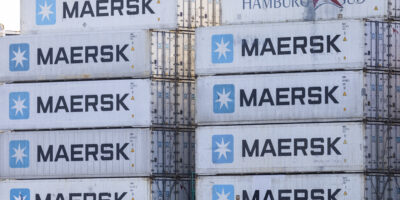
SGTraDex: Singapore tackles supply chain disruptions with a data-sharing platform. Source SGTraDex
SGTraDex: Singapore tackles supply chain disruptions with a data-sharing platform
- The Singapore Trade Data Exchange (SGTraDex) platform is a public-private initiative that connects ecosystem partners in the local and global supply chains via a common data infrastructure.
- As of now, SGTraDex has more than 70 participants that seeks to tackle supply chain disruptions.
- The platform is expected to unlock more than US$100 million of value for existing participants from three initial use cases by 2026.
For the past two years and counting, global supply chains have been buffeted from multiple directions by adverse factors—mostly due to Covid-19. Almost no country was spared from the pandemic-induced supply chain disruptions that were even triggered by several geopolitical issues around the world. It came to a point that businesses were required to shift their focus from investment, innovation, and expansion towards a greater emphasis on resilience.
The pandemic has also awakened many to realize the evolution of traditional supply chains toward a connected, smart, and highly efficient supply chain ecosystem, is critical. Being at the center of the South East Asian region, Singapore has grown to be a critical supply chain hub for this part of the world. Realizing its key role, especially after the disruptions in the supply chain during the pandemic, the island city-state, under a public-private initiative launched a platform known as the Singapore Trade Data Exchange (SGTraDex).
Unveiled on the sidelines of Asia Tech x Singapore (ATxSG) 2022, SGTraDex is basically a digital utility that is made to connect ecosystem partners in the local and global supply chains via a common data infrastructure. SGTraDex Services CEO Antoine Cadoux shared that since “Digitalisation has transformed many sectors, but in the global supply chain and trade sector, its promise has yet to materialize. The physical exchange of paper remains the norm.”
To put it simply, SGTraDex is made to reduce long-standing disruptions like supply chain inefficiencies,which includes heavy reliance on manual, paper-based processes that undermine efficiency, transparency and sustainability. The platform was first announced at last year’s ATxSG event and has since been piloted with three initial uses: strengthening the financing integrity of trade flows; enhancing end-to-end visibility of container logistics flows; and digitizing the bunkering or ship fuel supply industry.
In essence, SGTraDex works by allowing regulatory, logistics and trade financing data to be shared, and such things would help supply chain players optimize cargo handling and operations and build confidence in trade financing. At this point, more than 70 participants have signed up for this digital utility and by 2026, it is expected to unlock more than US$100 million of value for existing participants from the three initial use cases. This will come through cost savings from improved efficiency and productivity, optimal use of assets, faster access to financing, and other value-creating benefits.
“For example, in the container logistics use-case, one of the pain points was the limited access to timely data, which leads to congestion at ports and various transport nodes. SGTraDex enables the exchange of data between shipping lines, hauliers, and port operators, thereby improving planning, increasing asset utilization, and boosting productivity,” a statement by SGTraDex reads.
As for the bunkering optimisation use-case, by allowing a range of ecosystem partners such as storage facility operators, barge operators, and financial institutions, to digitalise their relationships, SGTraDex mitigates inefficiencies, builds trust and strengthens trade in the sector Interestingly, the participants range from multinational corporations, large local enterprises and small and medium sized enterprises.
They include DBS Bank, OCBC Bank, Standard Chartered Bank, UOB, commodity trader Trafigura, PSA, Jurong Port, Pacific International Lines (PIL), Ocean Network Express (ONE), Advario (a carve-out of Oiltanking), Jurong Port Universal Terminal and energy companies ExxonMobil Asia Pacific and Chevron.
The platform also allows documents to be verified using the TradeTrust framework and distributed ledger technology. TradeTrust provides participants with proof of authenticity and origins of the documents exchanged on the SGTraDex infrastructure
“We believe that the plug-and-play digital infrastructure we have created at SGTraDex will go a long way to make it easy for all participants to share data under an agreed set of rules. Our goal at SGTraDex is to enable global trade to happen more quickly, more reliably, and with higher integrity,” Cadoux said during the launch.
Even SGTraDex Technologies CEO Liau Eng Soon said “By helping participants shift from a manual and paper system to sharing data through a neutral common data infrastructure, SGTraDex will raise their productivity and efficiency. Participants will also have complete autonomy in what data they wish to share with their ecosystem partners, and no one will be forced to share confidential information.”
At this point, SGTraDex is also working with partners to pilot three new use cases in the coming months, on green and sustainable trade financing, reducing demurrage costs, and increasing transparency in supplies and spare parts in the maritime industry.
READ MORE
- Ethical AI: The renewed importance of safeguarding data and customer privacy in Generative AI applications
- How Japan balances AI-driven opportunities with cybersecurity needs
- Deploying SASE: Benchmarking your approach
- Insurance everywhere all at once: the digital transformation of the APAC insurance industry
- Google parent Alphabet eyes HubSpot: A potential acquisition shaping the future of CRM


